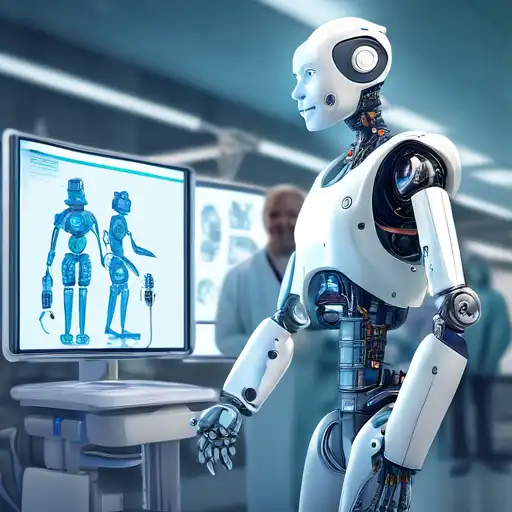The Revolutionary Impact of Robotics in Healthcare
In recent years, the integration of robotics into healthcare has marked a significant leap forward in medical technology. From surgical robots to robotic prosthetics, the applications are vast and transformative. This article explores how robotics is reshaping the healthcare landscape, offering unprecedented precision, efficiency, and outcomes.
Precision and Efficiency in Surgical Procedures
One of the most notable applications of robotics in healthcare is in the realm of surgery. Robotic surgical systems, such as the Da Vinci Surgical System, allow surgeons to perform complex procedures with enhanced precision, flexibility, and control. These systems minimize human error, reduce patient recovery times, and lower the risk of complications.
Robotic Prosthetics and Rehabilitation
Robotics has also revolutionized the field of prosthetics and rehabilitation. Advanced robotic limbs offer amputees unprecedented mobility and functionality, closely mimicking natural movement. Furthermore, robotic exoskeletons are being used in rehabilitation centers to help patients regain strength and mobility after injuries or strokes.
Automation in Patient Care and Logistics
Beyond direct medical applications, robotics plays a crucial role in patient care and hospital logistics. Automated guided vehicles (AGVs) transport supplies and meals within hospitals, reducing the workload on staff and minimizing the risk of contamination. Similarly, robotic process automation (RPA) is streamlining administrative tasks, from patient scheduling to billing, allowing healthcare providers to focus more on patient care.
The Future of Robotics in Healthcare
The potential for robotics in healthcare is boundless. With advancements in artificial intelligence and machine learning, future robotic systems will be even more autonomous and capable of performing complex tasks. From nanorobots targeting cancer cells to robotic nurses providing round-the-clock care, the possibilities are endless.
As we stand on the brink of this technological revolution, it's clear that robotics will continue to be a game changer in healthcare. By embracing these innovations, the medical community can enhance patient outcomes, improve efficiency, and tackle some of the most challenging health issues facing society today.
Conclusion
The integration of robotics into healthcare is transforming the way we approach medical treatment and patient care. With its ability to improve precision, efficiency, and outcomes, robotics is undoubtedly a game changer in the field. As technology continues to evolve, the future of healthcare looks brighter than ever, promising a new era of medical innovation and patient care.
